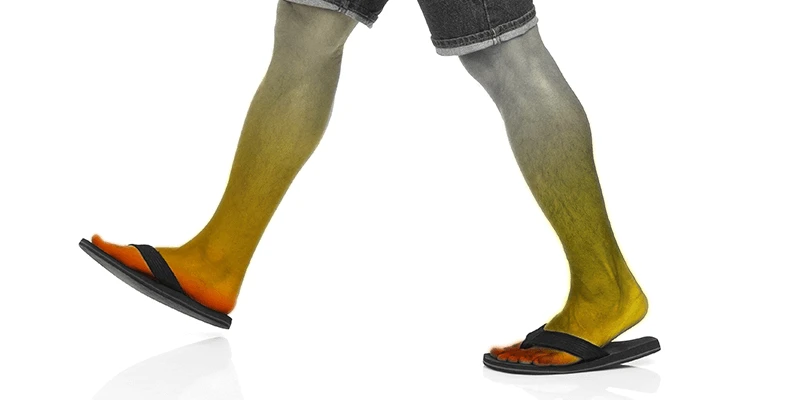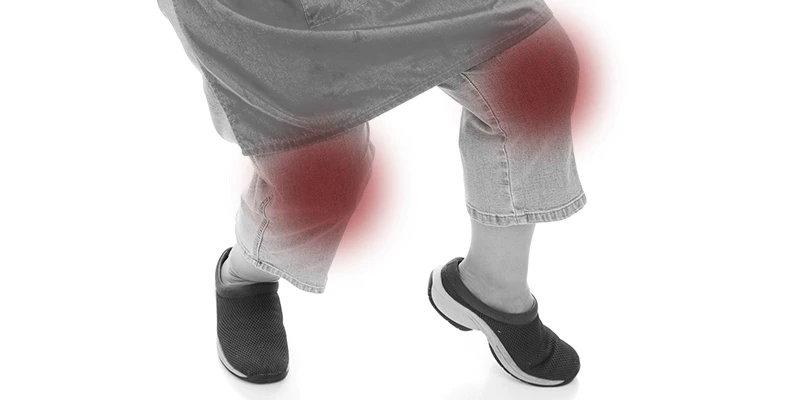Summer is usually the time for your feet to get that sun exposure, and feel more open. Feeling this way can lead you in acquiring summer shoes that will cause more harm than good. The Step by Step Foot Care Clinic in Toronto, Canada has prepared an excellent article with an infographic on 4 types of summer shoes to avoid for healthy feet.
Summer is a grand adventure of freedom and fun in the sun for all who choose to enjoy it. Kids wander around barefoot in the dirt, dragging their favorite toys with them while adults slip on a pair of their favorite summer shoes and go about their day.
It sounds like all it takes is a comfy pair of flip-flops or sandals to relax comfortably in the heat. However, the long-term effects of wearing what most consider summer shoes can have quite an uncomfortable effect on the body, especially the spine.
Contents
Just because summer lacks structure doesn't mean your shoes should. For some reason, many shoe manufacturers ignore the important role supportive shoes play when it comes to maintaining a healthy spine. Fashionable shoes have become a trend resulting in more foot pain and anywhere else on the body.
Here are 4 types of summer shoes you should avoid wearing:
Flat shoes of any kind don't provide shock absorption for your feet, and wearing them could result in stress fractures in your feet and toes. Stress fractures are small cracks in the bone; in this case, they are caused by the repetitive force that occurs when your feet land on the ground without proper shock absorption.
Wearing flat sandals regularly makes you more susceptible to stress fractures. It can also lead to cracked heels. With sandals, you lacked the heel support. You heel support holds your heel's fat pad in place, as you walk. When there are no support surrounding it, your heel squishes outward with every step. This squishing causes your skin to stretch out and eventually crack. Given that the summer is usually hot, if your skin is dry, you're more likely to develop heel cracks because your skin won't be as elastic as it should be.
Heel cracks might not seem like a big deal when they're small, but anytime you have an open sore, no matter how small, it's an invitation for bacteria to get inside and create illness in the body.
Bacteria that infects cracked heels can lead to cellulitis, warts, and even athlete's foot. Having any kind of bacterial or viral infection in your feet can be extremely painful, and can make it hard to function on a daily basis. Routine tasks that require walking or standing can become painful, and if you rely on being on your feet for work, you may end up missing some hours.
If you can't bear the thought of leaving your beloved sandals behind, look for sandals that offer some kind of heel support or straps that wrap around your ankle. This style may not be appealing to you so consider trading in your flat sandals for a different style that provides full support for your feet. basically, you are looking for a support you'd find in a tennis shoe.
If you do end up with a fungal infection, remember that fungal infections are contagious and can spread to other parts of your body. Be sure to keep your feet dry and don't wear shoes that will provide the dark, damp environment fungus thrives in.
Applying a soothing peppermint and lavender balm to your heels before your day starts will increase the elasticity of your skin and keep your heels moisturized. Different balms exist in spa's and online. You don't even need to buy an expensive balm. You can make your own with a few drops of essential oils in a carrier oil like coconut oil. Simply add some cocoa or Shea butter to your coconut oil and you will have a good supply on hand for future use.
There's a reason they're called flip flops - that's the sound the thin strips of rubber make when they reconnect with your foot after each step. Just like flat sandals, flip-flops don't provide any shock absorption for your feet.

If you have sciatica, avoid flip-flops completely.
When walking in flip-flops, you have to slightly curl your toes to keep them from sliding off your feet when you walk. Walking with your toes curled shortens your stride and reduces the amount of time your feet spend in contact with the ground you're walking on. Walking this way puts more pressure on your lower spine and can increase your sciatic pain.
Never run in flip-flops. Running in flip-flops should be avoided for basic safety reasons, but it's also hard on your feet and can cause stress fractures.
If you have to wear flip flops, find a pair with a thicker, contoured sole that will prevent you from walking with your toes curled.

A 2010 study on the effects of footwear and osteoarthritis of the knee concluded that wearing clogs increased the load on a person's knees by up to 15% compared to regular walking shoes and even flip-flops. This means clogs are worse than flip-flops if you have arthritis in your knees.

If you're going to wear clogs, carry a pair of sneakers in your car, just in case. You'll be glad you did!
Who hasn't owned a pair of Chuck Taylor Converse sneakers at some point in their life? They might be fashionable for summer but, unfortunately, they're absolutely flat and provide no support for any part of your feet.
If your favorite shoes are on this list and you're not ready to part ways, consider using custom orthotics in your Chucks or other regular shoes (even boots).
Custom orthotics are superior to over the counter supports purchased in the store. These types are more tailored to your personal needs and care. Custom orthotic foot braces are designed to control abnormal foot function while re-establishing your proper weight distribution. It is particularly important when you walk since it will improve your overall biomechanics.
Thank You to the Step by Step Clinic for their very insightful article on the 4 types Of summer shoes to avoid.
[ABTM id=2414]
 |
 |
 |
 |
Great Ones for You